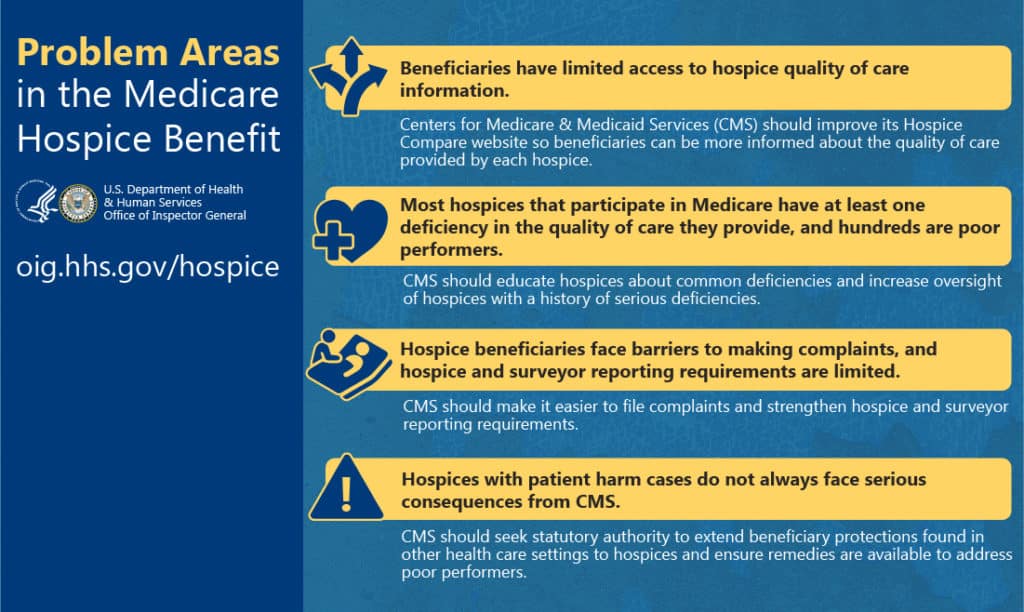Medicare and Medicaid are the deep pockets of the federal budget, paying out nearly $1 trillion in 2018. So, it’s no wonder the programs are targets for fraudsters. Some steal from the sick. Some steal money meant to soothe the dying.
So, a new Department of Health and Human Services report on poor quality hospice care is a reminder: Whistleblowers, who have helped expose hospice billing fraud under the False Claims Act, may also have a role in ensuring quality care. It is essential to protect the False Claims Act to target cases of Medicaid or Medicare fraud.
The False Claims Act (FCA) has emerged, for better or for worse, as a quality enforcement tool. With quality of care as an ever-moving target by the federal government (with the constant development of new quality measures), the FCA has faced its share of criticism as too blunt of an instrument to regulate quality of healthcare, a matter that many argue is better left to the states under their police power…However, it can be argued that since the federal government is the biggest buyer of healthcare, it thus has a stake in how its monies are used.”
Whistleblower hospice cases generally involve care that was not needed or never delivered. In June, a Los Angeles doctor was charged in a $33 million fraud scheme that involved hospice care. Last year, a nurse blew the whistle on a for-profit hospital chain. Caris Healthcare agreed to repay $8 million for submitting hospice bills for patients who were ineligible for the because they were not terminally ill. Sometimes billing and quality of care are intertwined. In a 2018 Texas case, a doctor told an informant that the way you make money on hospice patients “is by keeping them alive as long as possible.”
The report from the HHS Inspector General. Reviewers found that consumers — caregivers and their families — face barriers to making complaints about the quality of care. The report notes hospice programs do not always “handle grievances appropriately” even when beneficiaries can figure out how to file them. The programs are not held accountable for quality problems, the report concluded, Examples cited in the report include poor pain control, bedsores with gangrene and maggots on a feeding tube.
Zhang, writing on the ABA site, notes that “The False Claims Act is not an ‘all-purpose antifraud statute’…or a vehicle for punishing garden-variety breaches of contract or regulatory violations.” The approach comes with its own challenges.
“However, compliance programs should still carefully monitor their quality metrics because an FCA allegation, with all its penalties, is simply not worth the cost of litigation,” she writes.
